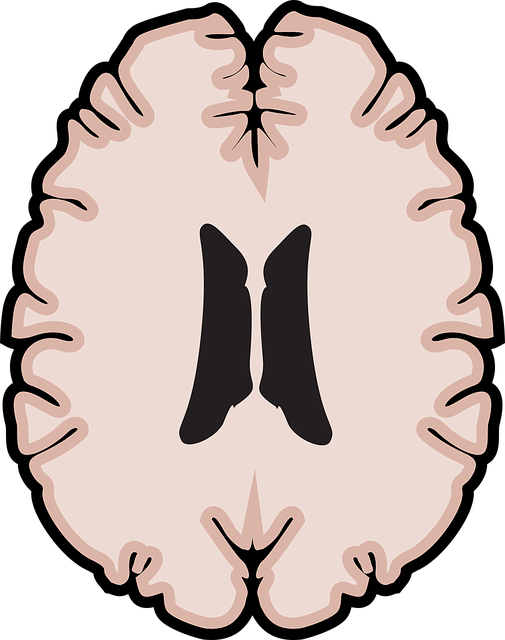Substance abuse stems from underlying mental health conditions like depression or trauma, which individuals may self-medicate with drugs or alcohol. Prevention and treatment require understanding these root causes, as highlighted by Lakewood Sexual Addiction Therapy's successful approach to addressing sexual compulsion through therapy, support groups, and journaling. Identifying personal risk factors, reducing mental illness stigma, mindfulness meditation, and proactive anxiety relief are key strategies. Educational campaigns raise awareness, fostering open dialogue and early intervention. Healthcare provider training enhances cultural competency for tailored support. Seeking professional help from Lakewood Sexual Addiction Therapy offers specialized programs to mitigate risks associated with substance abuse and promote long-term recovery.
In the pursuit of a healthier, safer life, understanding and mitigating substance abuse risks is paramount. This comprehensive guide explores strategic approaches to risk reduction, offering insights tailored for those seeking to overcome addiction. From unraveling the complexities of substance abuse and identifying personal risk factors to implementing proven prevention methods and leveraging therapy as a powerful tool, we delve into effective strategies like Lakewood Sexual Addiction Therapy, empowering individuals on their journey towards recovery and well-being.
- Understanding Substance Abuse and Its Risks
- Identifying Personal Risk Factors
- Implementing Effective Prevention Strategies
- Seeking Support: Therapy as a Risk Mitigation Tool for Substance Abuse
Understanding Substance Abuse and Its Risks

Substance abuse is a complex issue that can have severe physical and psychological consequences. It often stems from underlying mental health conditions such as depression, anxiety, or trauma, which individuals may attempt to self-medicate with drugs or alcohol. Understanding these root causes is crucial for developing effective risk reduction strategies. For instance, in the case of Lakewood Sexual Addiction Therapy, addressing sexual compulsion disorders requires a multifaceted approach that includes therapy, support groups, and mental wellness journaling exercises to help individuals gain insight into their behaviors and develop healthier coping mechanisms.
Risk factors for substance abuse vary widely, encompassing genetic predispositions, environmental influences, and social pressures. Recognizing these risks is the first step towards prevention. Mental illness stigma reduction efforts play a significant role in encouraging those struggling with addiction to seek help without fear of judgment. Additionally, activities like mindfulness meditation and journaling can provide valuable anxiety relief and promote mental wellness, serving as proactive measures against substance abuse.
Identifying Personal Risk Factors

Identifying personal risk factors is a crucial step in navigating and mitigating potential substance abuse issues. This process involves a deep understanding of one’s unique circumstances, behaviors, and emotional states. Individuals must examine their history to uncover any past traumas, mental health struggles, or genetic predispositions that could contribute to an increased vulnerability. For instance, those seeking Lakewood Sexual Addiction Therapy might realize that their struggle is intertwined with underlying anxiety or depression, requiring comprehensive mental illness stigma reduction efforts.
Public awareness campaigns development and education play a significant role in this context. By learning about the signs of substance abuse and mental health disorders, individuals can foster an environment of open dialogue and early intervention. This proactive approach encourages people to seek help without fear of judgment, ensuring that those at risk receive the necessary support and anxiety relief they deserve.
Implementing Effective Prevention Strategies

Implementing effective prevention strategies is a multifaceted approach to tackling substance abuse, and one key area is addressing underlying mental health issues. Lakewood Sexual Addiction Therapy, for instance, plays a vital role in identifying and treating sexual addiction, a complex behavior often linked to deeper psychological concerns. By offering specialized therapy, healthcare providers can help individuals understand and manage their addictions, fostering positive thinking and personal growth.
Moreover, enhancing the cultural competency of healthcare providers is essential. Training in this area enables professionals to offer tailored support, recognizing that different cultural backgrounds may influence an individual’s relationship with substances. Empathy-building strategies, when incorporated into prevention programs, create a safe space for individuals to open up about their struggles, fostering trust and encouraging them to seek help early on. This holistic approach ensures that prevention efforts are inclusive and effective in reducing the risk of substance abuse.
Seeking Support: Therapy as a Risk Mitigation Tool for Substance Abuse

Seeking professional help is a pivotal step in mitigating risks associated with substance abuse. Lakewood Sexual Addiction Therapy offers specialized programs designed to address deep-seated issues contributing to addictive behaviors. Through individual or group therapy sessions, individuals can explore their personal struggles and develop effective coping strategies. The therapists at Lakewood Sexual Addiction Therapy are trained to facilitate self-esteem improvement, a critical aspect often linked to addiction.
Incorporating stress management workshops and other therapeutic interventions equips individuals with tools to handle triggers and cravings. By participating in these programs, one can learn healthy ways to manage stress, enhance coping skills development, and prevent relapse. This holistic approach not only reduces the risk of substance abuse but also fosters long-term recovery and improved overall well-being.
Substance abuse poses significant risks, but with a multi-faceted approach, individuals can reduce these dangers. By understanding the nature of addiction and identifying personal risk factors, one can implement effective prevention strategies. Seeking professional support through therapy, specifically tailored for issues like sexual addiction (a service offered by Lakewood Sexual Addiction Therapy), plays a crucial role in mitigating these risks. Combining education, awareness, and access to quality care empowers individuals to make informed choices and lead healthier lives.













